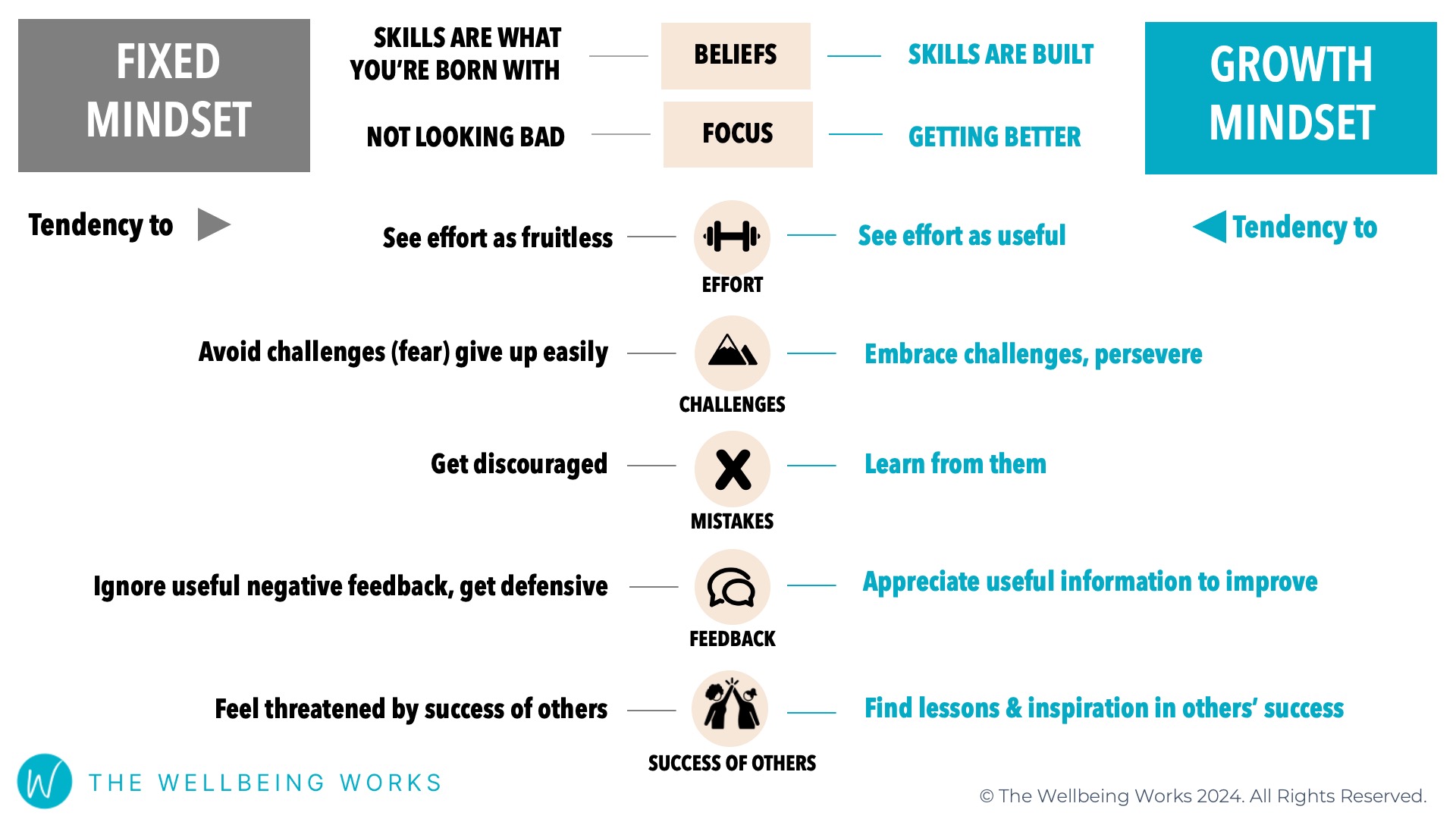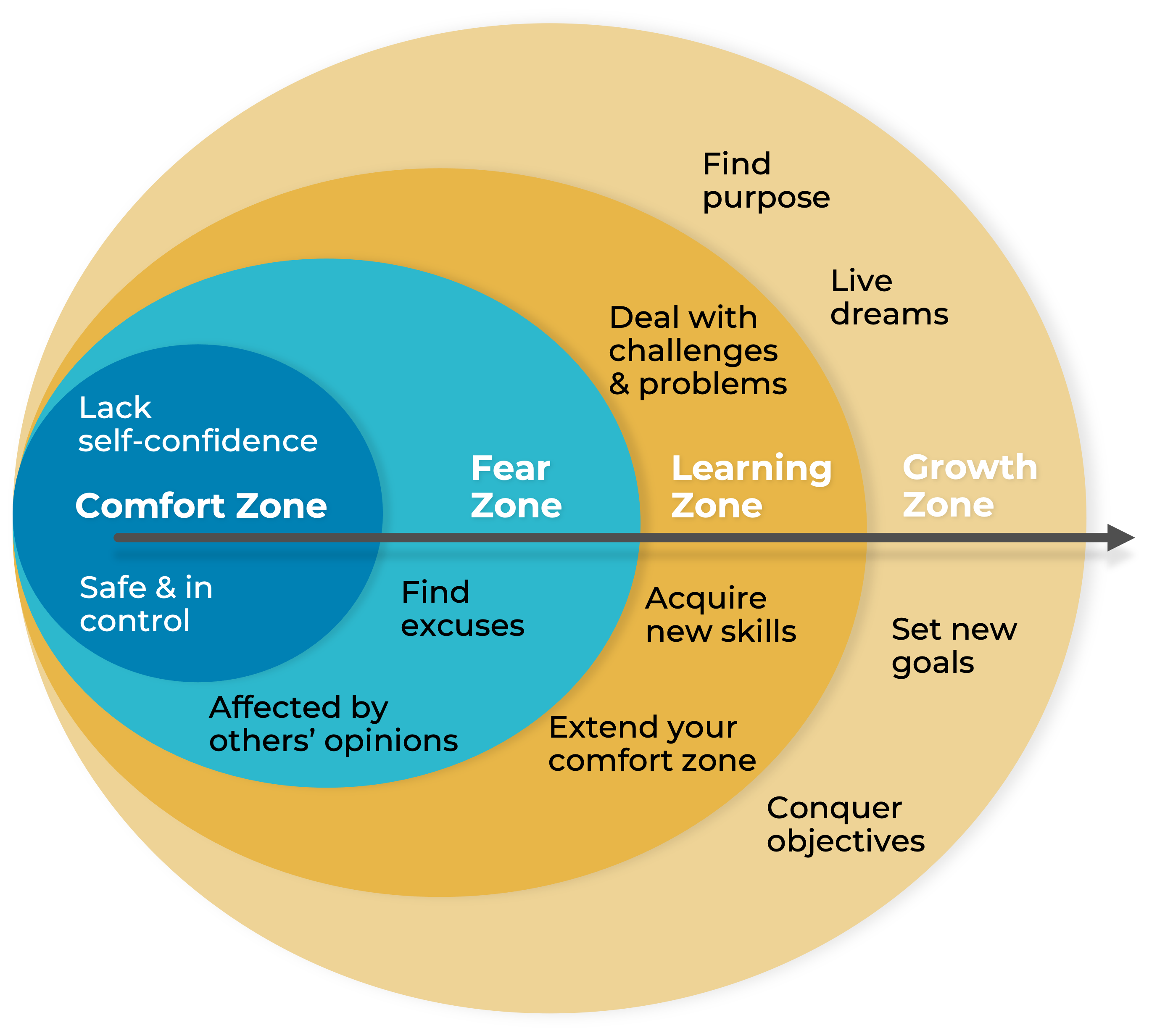A growth mindset makes us mentally flexible. We see effort, challenges and feedback positively, and we aren’t threatened by someone else’s success. Performance coach Ged Robinson explains.

Having a fixed mindset leads to a tendency to fear failure. You think, ‘what’s the point in putting in a lot of effort if I don’t have the ability?’.
With a fixed mindset, you tend to be less interested in learning, you’re more interested in looking smart, and avoiding making mistakes.
We all have a mixture of both. For example, you may have a growth mindset about marketing – you learn about it, seek to improve by trying new things. But you might have a fixed mindset about business development, you believe networking and sales skills are not your thing, they don’t come naturally so you avoid going to industry events and making cold calls.
A growth mindset benefits us in four ways. With a growth mindset:
- We see effort as something useful that helps us master what we need to do instead of thinking ‘what’s the point, I’m no good at this’.
- We see challenges positively, we’re more likely to embrace challenges rather than avoid them, and don’t we don’t give up.
- We see feedback as something helpful. Instead of getting defensive, we take on board ideas to improve.
- We don’t feel threatened by someone else’s success. We look for lessons and inspiration from their success. We might think, “What are they doing? How can I learn from what they are doing well?”
A growth mindset helps push us outside our comfort zone.

When we are inside our comfort zone, we feel safe and in control.
Stepping outside our comfort zone, we enter the fear zone which can feel uncomfortable and uncertain. Here we can decide how we react. In the fear zone, often we worry about failure. “What if something doesn’t work?” “What if I can’t do it?”. Finding excuses drags us out of our fear zone and back into our comfort zone.
But mustering the courage to embrace uncertainty, face the challenge and push through the fear zone is how we grow and improve.
Then we hit the learning zone. This is where we acquire new skills, deal with problems and challenges, grow and improve – and ultimately extend our comfort zone. With a growth mindset we open ourselves up to learning from trial and error, learning from our mistakes.
When we go outside our comfort zone, our brain lights up and starts wiring and firing. It’s the process of making mistakes, learning, and correcting that builds new and stronger neural pathways in our brain. But we have to go outside our comfort zone for that to happen. When it does, our brain builds these connections that get smoother and faster, the more we practice.
For example when I was 18 I spent a lot of time waiting to play cricket. I decided to use that time to learn how to juggle. I’d juggle a little bit over and over until I nailed a drill. And then I’d try the next drill. And then I’d try the next drill. Over time I started to improve but I still kept failing because I was in the learning zone. All that time, my brain was building connections until I could juggle three apples and eat one of those apples at once. (You can see me do this in the video!)
Whatever skill you want or have to learn, whether it’s adopting new technology, analysing financial statements, writing contracts, the more you go outside your comfort zone and work on those challenges and obstacles, the more you can achieve.
A quick hack for helping us to push through that fear zone is to use one simple word, “yet”. I’m no good at this “yet”. It reminds us that with effort and a willingness to learn, we can get to where we want to go. It encourages us to see failure as a stepping stone to growth.
Having a growth mindset and the right mental attitude will determine how you react and respond in situations. Challenge yourself and see where you can go.

